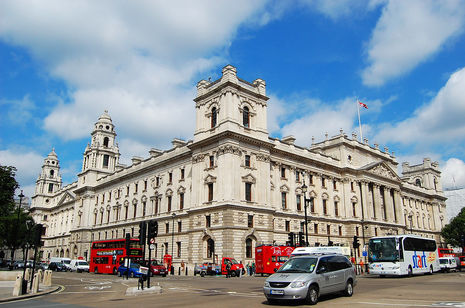Tuition fees to be cut?
Talks over cutting current tuition fees up to £750 occurred in the run up to the annual spending review, in efforts to reduce rising unpaid student debt

High-level discussions over potential cuts to tuition fees have reportedly been held in Whitehall, though officials struggled to reach an agreement before the chancellor’s spending review yesterday afternoon (27/10).
The proposal - to reduce fees from £9,250 to £8,500 - has been the subject of “lively” talks between representatives from No 10, the Treasury and the Department for Education, a source told the Guardian.
Cuts to tuition fees would reduce the amount undergraduates are forced to borrow, and by extension, decrease the amount of unpaid debt that falls to the state if they fail to repay the fees within 30 years.
Such reductions to fees have been recommended for years, with the 2019 Augar review of post-18 education suggesting a tuition cut of almost £2,000 as part of radical overhaul of university funding.
While the Treasury was the primary pusher of the tuition fee cut, the source reported, officials at the DfE and No 10 seemed more skeptical, warning it could have potentially devastating impacts on universities’ finances at an already economically precarious time.
Government ministers are also reported to be considering cutting the threshold at which graduates are required to start paying back their tuition and maintenance loans.
The threshold reduction, which would force grads to begin making payments once they start earning as little as £23,000 (£4,000 lower than the current £27,000 limit), would be part of a student financing overhaul, designed to save the Treasury billions of pounds.
First reported in September, the proposal caused a wave of outcry, with the National Union of Students calling it “simply astounding”, and a leading Conservative warning against putting the “cart before the horse” by further financially burdening students before first addressing the educational disruption caused by the pandemic.
Nick Hillman, director of the Higher Education Policy Institute (Hepi) thinktank and special advisor to the universities minister during the rise of English tuition fees in 2012, thinks cuts on the scale recommended by Augar seem increasingly unlikely in the current climate - though reductions on a smaller scale may be still be on the table in the future.
“The Augar recommendation of a cut of almost 20%, to £7,500, has come to look implausible, especially in the context of rising inflation, as it would have a dramatic impact on institutional finances,” he wrote in a Hepi blogpost.
“Imagine being a Tory MP for a red wall seat with a higher education institution that might be pushed to the wall by such a cut: you are not going to hold your seat easily and, therefore, you are not going to support such a change.”
With outstanding student loans reaching £140bn last year, the Treasury is “very, very keen” to save money on higher education, Hillman told the Guardian.
Despite a brief mention of the fact that, “with less than 1% of the world’s population”, the UK possesses “4 of the world’s top 20 universities”, no university tuition cuts were announced during the Chancellor of the Exchequer’s spending review yesterday (27/10).
 News / Cambridge academics stand out in King’s 2026 Honours List2 January 2026
News / Cambridge academics stand out in King’s 2026 Honours List2 January 2026 Interviews / You don’t need to peak at Cambridge, says Robin Harding31 December 2025
Interviews / You don’t need to peak at Cambridge, says Robin Harding31 December 2025 Comment / What happened to men at Cambridge?31 December 2025
Comment / What happened to men at Cambridge?31 December 2025 News / Varsity’s biggest stories of 202531 December 2025
News / Varsity’s biggest stories of 202531 December 2025 Features / “It’s a momentary expression of rage”: reforming democracy from Cambridge4 January 2026
Features / “It’s a momentary expression of rage”: reforming democracy from Cambridge4 January 2026










